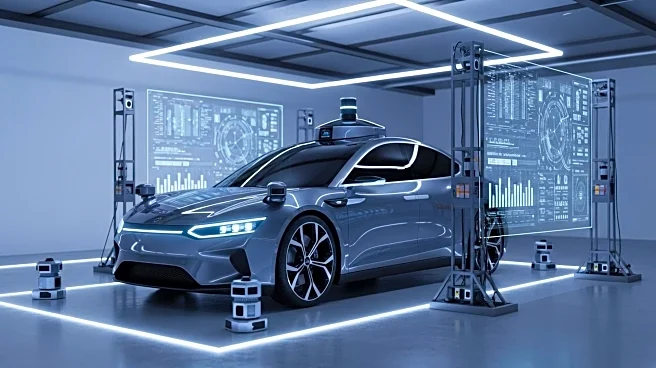What is the story about?
What's Happening?
A recent study reveals that Tesla's Full Self-Driving (FSD) feature is not favored by many potential buyers, with nearly half of consumers believing it should be illegal. The study indicates that the self-driving feature makes consumers less likely to purchase Tesla vehicles by a two-to-one margin. Despite Tesla's belief that FSD is a key selling point, the negative perception poses a challenge to the company's sales recovery. The study highlights consumer concerns about safety and legal implications, as some accidents involving FSD have led to lawsuits.
Why It's Important?
The findings underscore the challenges Tesla faces in promoting its self-driving technology amid consumer skepticism. The negative perception of FSD impacts Tesla's brand image and sales, particularly in competitive markets like the European Union and China. As self-driving technology is a significant aspect of Tesla's marketing strategy, the consumer backlash could hinder the company's growth and innovation efforts. The study's results may influence Tesla's approach to product development and marketing, as well as regulatory discussions on autonomous vehicle technology.
Beyond the Headlines
The study raises ethical and legal questions about the deployment of self-driving technology and its impact on public safety. The consumer concerns reflect broader societal debates on the role of artificial intelligence in transportation and the balance between innovation and regulation. Tesla's experience may prompt other automakers to reassess their strategies for introducing autonomous features, considering public sentiment and legal frameworks. The long-term implications could shape the future of mobility and the integration of AI in everyday life.















